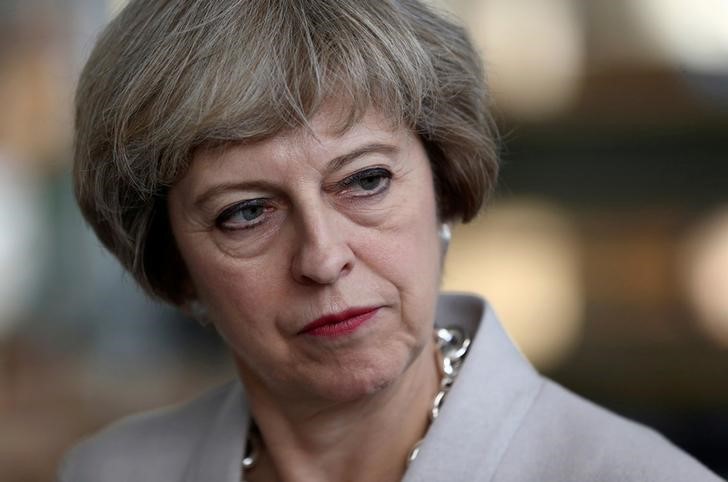(Bloomberg) -- Theresa May is considering a new tactic in her desperate bid to deliver Brexit.
The prime minister’s deal has been rejected three times by Parliament, and if she doesn’t get it done within a month she’ll have to fight European elections that will be punishing for her party.
So instead of putting the deal itself back to lawmakers, she’s going to try her luck with a proxy instead -- a piece of legislation that would enshrine her deal in law.
It’s a gamble, and she’s lost many of those already, but the idea is that her opponents will be able to add their own Brexit wishes to the legislation with amendments. Once they’ve done that it might stand a chance of passing, according to one person familiar with government thinking.
She’s pinning her hopes on Labour members of Parliament voting for the bill, even though talks with the Labour leadership aimed at finding a Brexit consensus have so far failed to make progress.
If she fails, then more chaos and upheaval follows, and there’s no chance she can deliver Brexit in time to avoid EU elections. But there’s little to lose by trying -- if she doesn’t put the bill to Parliament in the next couple of weeks, there’s no way the U.K. can leave before the poll.
‘Soon as Possible’
The cabinet on Tuesday agreed that the Withdrawal Agreement Bill should be put before the House of Commons “as soon as possible,” May’s spokesman James Slack told reporters. The question, he said, was how to ensure its “safe passage.”
Ministers are split on the tactics. Ministers including Home Secretary Sajid Javid made the case for bringing the bill forward quickly, according to one person familiar with the meeting. But in reply, Chancellor of the Exchequer Philip Hammond pointed to dangers: The bill might be voted down. If that happens, May wouldn’t be able to bring it back without ending the current parliamentary session and starting a new one. That involves time-consuming process and procedure, though not a new election.
Parliament has rejected May’s Brexit deal three times. The only reason for May to hope that the Withdrawal Bill could have a better chance is that its passage would allow different parliamentary factions the chance to amend it to include their preferred Brexit outcomes. That’s the argument for doing it, according to one person familiar with the government’s thinking.
‘Serious,’ ‘Difficult’
One person familiar with May’s thinking said the decision about whether to bring forward the Withdrawal Bill would be made depending on developments in the next few days as talks with Labour continue.
The bill could be a vehicle for carrying commitments that the opposition Labour Party is asking for on employment rights and environmental protections.
Although May told cabinet that these talks were “serious,” Slack said she also said they were “difficult in some areas.” These include the question of a customs union with the EU. For Labour, that’s a minimum requirement. For May, it’s unacceptable. Two people involved with Labour’s side of the discussions said Tuesday that the party was a long way from being able to agree anything with the government.
